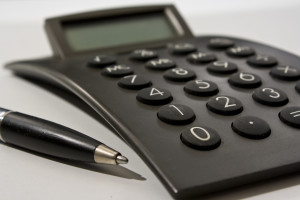 You’ve probably already started receiving letters or emails labeled “Important Tax Return Documents”. While it may seem a little early to start thinking about your tax returns that are not due for a few more months, it’s the ideal time to start planning for a smooth tax return preparation process.
You’ve probably already started receiving letters or emails labeled “Important Tax Return Documents”. While it may seem a little early to start thinking about your tax returns that are not due for a few more months, it’s the ideal time to start planning for a smooth tax return preparation process.
Here are some tips to get you started:
#1 Contact your tax advisor now
Map out the steps and timeline for your tax return preparation with your tax advisor. Find out when you need to have information to your tax advisor and when you should expect your tax return to be completed. Most importantly, get a list of the information you need to provide.
#2 Clean up your bookkeeping
Accurate bookkeeping can be one of the biggest obstacles in the tax return preparation process.
For starters, make sure your balance sheet accounts have been reconciled through the end of the year. For example, if you have a mortgage, makes sure the mortgage balance that shows on your balance sheet agrees to the mortgage statement received from the lender.
Review your balance sheet and profit & loss statement. While you may not be an expert at financial statements, you’re likely to catch something that is blatantly wrong.
#3 Note any changes to your entities
Did you add an entity last year? Or maybe you removed an entity, or perhaps the ownership of your entity changed. This information can have a major impact on your tax return preparation.
#4 Identify major purchases or sales of property
If you purchased a rental property, a new piece of equipment, a new business vehicle or something along those lines, have the details of those purchases available. Then do the same for any sales of property.
#5 Gather up your documentation
When it comes to permanent tax savings, the 3 most important words are: Documentation, Documentation, Documentation!
Proper documentation increases the accuracy of the information you provide to your tax advisor. This helps your tax advisor do more for you because they have good information.
Proper documentation also provides the support the government will want to see if you are audited.
Best of all, when you keep proper documentation, you do a better job of identifying all of your deductions so it’s a great way to reduce your taxes.
Documentation may include:
- Receipts
- Meeting minutes for your businesses / entities
- Loan documents between you and your businesses / entities
- Agreements between you and your businesses / entities
- Mileage logs
Activity logs (particularly in the U.S. for those who claim “real estate professional” status)
#6 Make a list of your questions.
As you are gathering your tax return information, you are going to run into questions for your tax advisor. Start writing down those questions and keep a running list. Then when you meet with your tax advisor, you’ve already got your questions ready and won’t forget any.
Start today.
The small things add up. Identify one small thing you can do today to pave the way for a smooth tax return preparation process. It can be one very small thing. For example, start a folder (either a paper one or an online one) and put all the tax documents you are receiving in that folder. Then, build on that every day.
If you enjoyed this article, you might also like “Maximizing the Benefits of an LLC in Your Tax Strategy”.